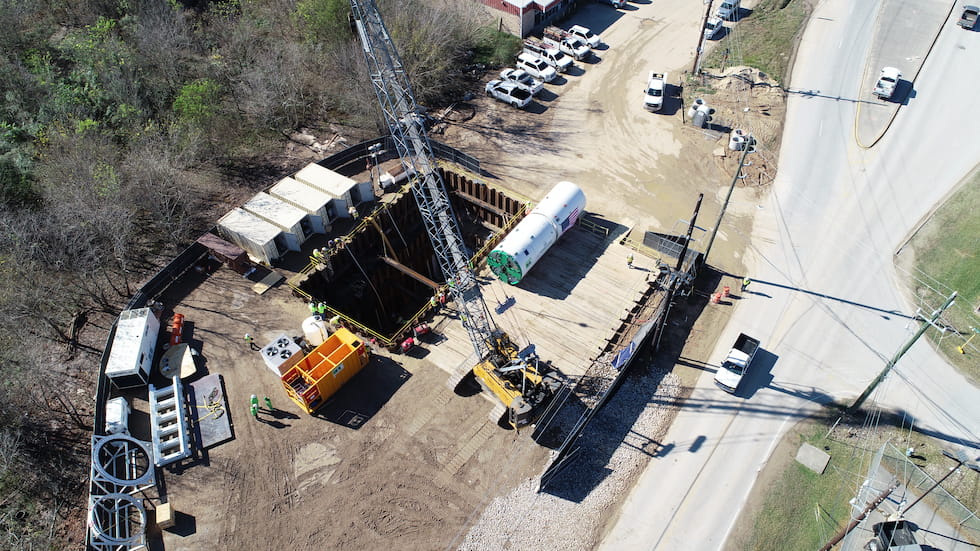
The coronavirus is impacting the pump industry in many ways. From events being canceled to distributors having to be more creative. Here, Pumps & Systems catches up with Steve Gilbreath, vice president of Lockwood, Andrews & Newnam, Inc. (LAN), to see how engineering firms are dealing with the pandemic.
Pumps& Systems: What types of projects are being put on hold?
Gilbreath: It varies both by geography and project type. Most projects in construction have not been impacted and are proceeding as planned. In some cases, projects are even accelerating.
Larger and smaller communities are becoming more cautious and are slowing or pausing on new design contracts. This includes horizontal projects (pipelines, flood control channels, etc.) and facility projects (pump stations, treatment facilities). Again, projects that are contracted have generally stayed the course. That said, many clients are still awarding contracts at their normal pace.
Some private utilities have temporarily postponed some planned infrastructure rehabilitation projects but are expected to resume those projects once the impacts to the economy are better understood and how it affects their business model.
Development projects (both public and private) may have paused depending on their financial situation and market sector.
P&S: How is that impacting your industry, and what projects are moving forward?
Gilbreath: The majority of our clients and firms like ours are all defined as essential. Construction and operations crews are still actively working, and our firm continues to support these projects and facilities.
Large diameter pipelines, treatment facilities, transportation and general infrastructure projects continue to move forward. In our region, flood control and drainage projects are a priority and those have not been delayed and measures to accelerate those are being implemented. Condition assessment on existing infrastructure and facilities are still actively proceeding to prioritize projects and funding.
Other areas impacted are equipment suppliers (pumps, valves, motors) and construction materials. We have been in contact with a diverse group of equipment manufacturers and asked similar questions regarding their impacts and the EPA has stated that all water and wastewater projects are essential. Most construction projects have not been impacted. Some European vendors are operating OK, minus Spain and Italy. China is restarting and believe they are about three weeks or more behind on deliveries. Anything from India is delayed.
Labor is the biggest concern from issues such as craftsmen and technicians not working or manufacturing assembly lines to their employees possibly coming down with the virus. Raw materials are not currently an issue and there is a healthy backlog of orders and capacity, but contractors are cautious. Specialized labor being available and getting to project sites for startup or specific trades is another issue.
Another major issue impacting our equipment suppliers is the logistics supply chain. Whether imported to a port or manufactured in the United States and hauled by truck, there are significant delays in those industries due to labor and constant adjustment to the supply chain. Certainty of delivery was listed by several suppliers as their biggest issue.
P&S: What do you expect to happen once this has cleared up (at least some)—will those projects be picked back up immediately?
Gilbreath: Anyone’s guess. My opinion is there will likely be moderate to significant delays for clients with financial structure based on future revenues (sales tax, property tax, bonds). There is current uncertainty and those clients without current funding are, and will continue, to delay projects.
It will take time to assess the financial “stress test” that our municipalities are evaluating to balance changes in revenues, borrowing, and fee structure for things like water and wastewater rates. Understanding these dynamics will take some time and will likely remain in uncertain territory.
P&S: Will there be more projects because of pent up demand and broken utilities everywhere?
Gilbreath: We all need basic infrastructure (water, wastewater, transportation) and any major disruptions will be a priority. There will be other demands on funds beyond infrastructure, so competition for projects and prioritization of available dollars will be at the forefront of decision-makers.
These demands may be pent up, but the funding capacity of these municipal clients is likely going to be further eroded both from revenue and lending capability. Revenue generation or a robust stimulus program will be key to how quickly infrastructure needs can be addressed.
P&S: How does the stimulus package impact projects? Will it take money from infrastructure spending?
Gilbreath: A stimulus package could be a game changer. Projects that are “shovel ready” have the largest near-term impact for the construction market sector. The projects that are ready to go to construction will be in the best position to receive those funds. That could benefit the engineering community to complete or fast-track designs.

